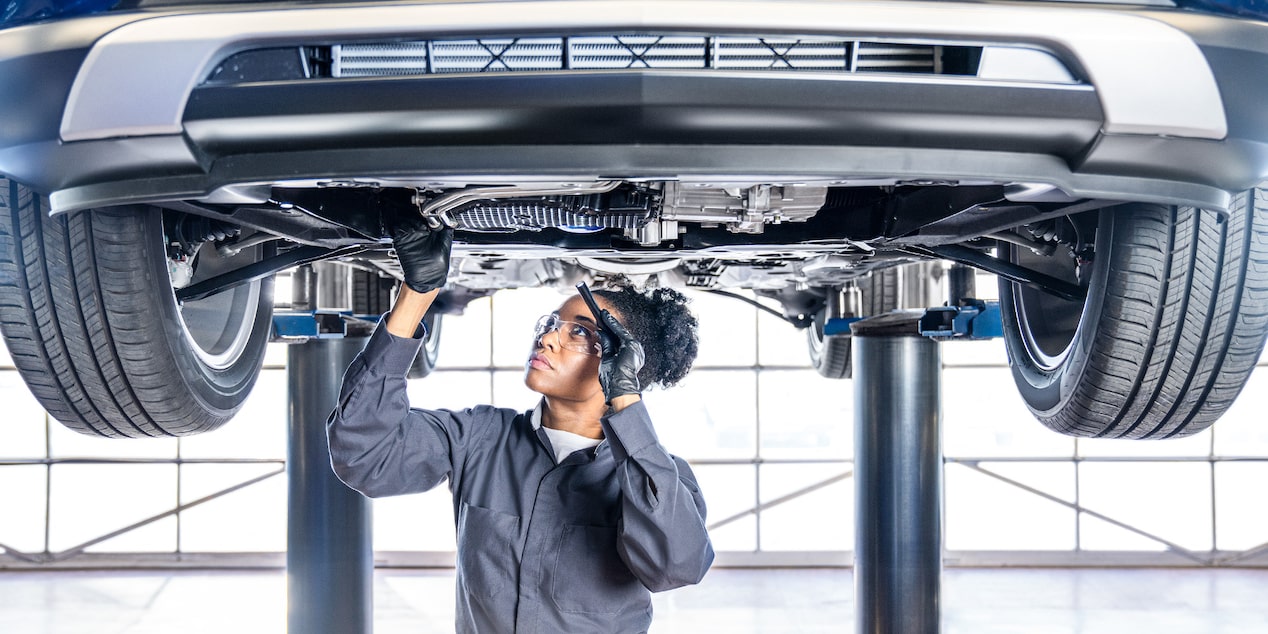All Categories
Featured

When it comes to automobile upkeep, the brakes are perhaps the most important system for ensuring your safety and security. Regular brake evaluations are necessary to keeping your braking system in top condition.
- Why Brake Examinations Are Essential. Brakes are made to wear down in time, however without routine assessments, you may not discover when they become much less reliable. A malfunctioning brake system can cause significant accidents, raised fixing expenses, and even the demand to change other automobile components.
Brake inspections not just aid you capture potential concerns before they rise, but they additionally enable better braking efficiency, raised automobile life expectancy, and improved security.
- Identifying Indication for Brake Troubles. While routine assessments are very important, you do not need to wait till your auto's following visit to the technician. Expect these warning indications that might show it's time for an inspection:
Uncommon Sounds: A high-pitched screech or grinding audio when using the brakes usually signals that the brake pads are worn down or harmed. Soft or Squishy Brake Pedal: If the brake pedal really feels soft or mushy when pushed, there might be air or wetness in the brake lines, or the brake fluid might be low. Pulling away: If the vehicle pulls to one side while braking, it might suggest unequal brake pad wear or a hydraulic problem in the brake system. Resonance in the Wheel or Pedal: If you experience resonance or pulsation when stopping, it might suggest deformed rotors or unequal brake pad wear. Boosted Stopping Distance: If it takes longer than normal to bring your automobile to a quit, it may be time to inspect the brake pads, fluid levels, or blades. If you see any of these signs, it's finest to have your brakes inspected immediately by a specialist.
- Secret Components Checked During a Brake Assessment. Throughout a brake inspection, a licensed mechanic will certainly check out numerous essential elements of the brake system to ensure they're functioning effectively. Some of the most integral parts to check consist of:
Brake Pads: These are the rubbing product that presses versus the brake blades to decrease the car. Over time, the brake pads wear down and require changing. Brake Rotors: Rotors are the steel discs that the brake pads secure down on. They should be smooth and complimentary of deep grooves or fractures. Brake Fluid: The brake liquid transfers the pressure from the pedal to the brakes. Low liquid degrees or old, contaminated fluid can cause poor stopping performance. Brake Lines: Brake lines bring fluid from the master cylinder to the brake parts. They need to be examined for leakages, cracks, or damages. Brake Calipers: These secure the brake pads onto the blades. They ought to remain in great working order and devoid of leakages. Routinely inspecting these elements guarantees your braking system functions efficiently and aids you avoid hazardous driving situations.
- How Frequently Should You Get Your Brakes Evaluated? The regularity of brake inspections depends upon your driving behaviors and the sort of car you own. As a general standard, it's advised to examine your brakes at the very least annually or every 12,000 miles. However, if you drive in heavy traffic, regularly lug heavy lots, or drive on sloping surface, even more regular assessments might be necessary.
It's also an excellent idea to have your brakes evaluated if you see any one of the warning indications pointed out previously, as this can protect against a lot more major problems.
- The Cost of Neglecting Brake Inspections. Overlooking regular brake evaluations can bring about serious consequences. Used brake pads, damaged rotors, or reduced brake fluid can create your stopping system to fall short when you need it most. Along with the safety risks, ignoring brake maintenance can bring about costly repair services in the future.
As an example, if the brake pads are not replaced in time, the damage might include the rotors, leading to the demand for blades replacement-- a pricey repair service. By organizing normal brake evaluations, you can stay clear of these costly fixings and keep your stopping system in excellent condition for longer.

- What Takes place During a Brake Evaluation? A specialist auto mechanic will execute a thorough evaluation of your lorry's braking system, including looking for the following:
Brake Pad Density: Brake pads need to be changed when they have actually used down to a particular thickness. Rotor Problem: The technician will inspect the rotors for indications of wear, bending, or racking up. Brake Liquid Degree: Reduced brake liquid can influence stopping performance. The auto mechanic will examine the liquid level and renew it if needed. Brake Line Integrity: The brake lines will be evaluated for any type of leakages or cracks that might compromise the brake system. As soon as the assessment is total, the auto mechanic will educate you of any type of essential repair services or substitutes.
Final Thought: Stay Safe with Normal Brake Inspections. Your brakes are vital to keeping you and your passengers secure when traveling, so normal brake examinations ought to never be disregarded. By taking note of indication, scheduling regular brake checks, and addressing concerns promptly, you can ensure that your brakes are constantly in top form.
Don't wait until your brakes stop working-- remain aggressive regarding brake maintenance. A small investment in brake assessments today can save you from pricey repair services and unsafe scenarios in the future.
Latest Posts
Find Outstanding Auto Repair Care from Montclare Auto Repair – Reliable Repairs Await
Why Chicago Drivers Pick Montclare Auto Repair for Dependable Service and Big Savings
Explore WyHy FCU Reduces Your Costs on Financing and Accounts
More
Latest Posts
Find Outstanding Auto Repair Care from Montclare Auto Repair – Reliable Repairs Await
Why Chicago Drivers Pick Montclare Auto Repair for Dependable Service and Big Savings
Explore WyHy FCU Reduces Your Costs on Financing and Accounts
